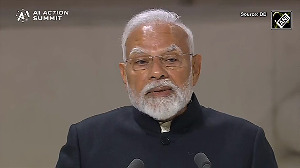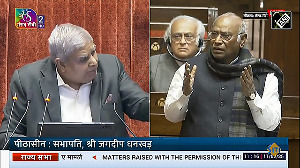The G-20, a group of developing countries including India, on Friday dismissed as "unacceptable" a 'blended formula' of tariff reduction in agriculture, proposed by the United States and the European Commission.
After an overall assessment of the 'blended formula', the G-20 has concluded that its structural flaws would prevent proper delivery on the Doha mandate for market access in agriculture.
"It is a meticulously structured approach to accommodate the interests of the proponents, and is detrimental to the interests of the majority of the members," the Group said in a statement issued in Geneva.
The 'blended formula', fails to deliver substantial improvement in market access, specially for products protected by tariff peaks, it said.
The US and the EC had put forward this formula for tariff reductions in the joint text presented in August last year and encompasses a proportion of tariff lines subject to the Uruguay Round tariff reduction formula and another proportion subject to the Swiss formula while the remaining tariff lines are proposed to be made duty-free.
Following the failure to agree on a framework text on the subject in Mexico last year, the G-20 undertook an assessment of the blended formula and have now arrived at the conclusion that it is "unacceptable".
The G-20 has contended that the proposed formula would most likely lead to a situation in which tariff lines of higher commercial interest to many members would be subject to only minimal cuts, creating a large self-declaratory opt out mechanism.
Developed countries have typical tariff structures characterised by clusters of very high tariff (tariff peaks) while the majority remains at fairly low levels or even duty free. The G-20 has concluded that the highest tariffs will be subject to the lowest tariff reduction.
The G-20 also fears that the likelihood of increased market access for the tariff lines subject to tariff rate quotas also remains uncertain.
Inequitable results arise from the application of the 'blended formula' on the different tariff structures of developed and developing countries. In view of this, it will impose an onerous burden of tariff reduction on developing countries, it claimed.
Consequently, their rural development, food and livelihood security needs would be overlooked. The formula does not provide for the special concerns expressed by the newly acceded countries and many other developing countries.
It would enable developed countries to protect their tariff peaks on products of export interest to several members, while application of the Swiss and duty-free components on their cluster of already low tariffs would result in minimal reductions.
The special and differential provisions will not compensate for these flaws of the 'blended formula'.






 © 2025
© 2025